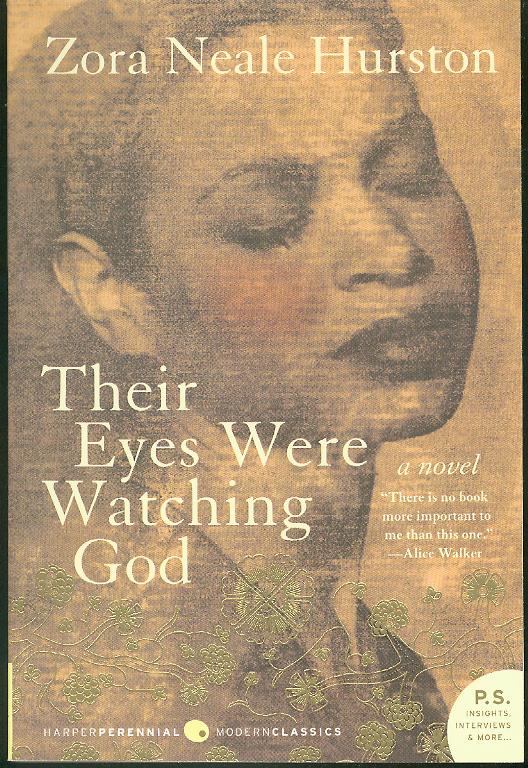“Discrimination is the hellhound that gnaws at Negroes in every waking moment of their lives to remind the that the lie of their inferiority is accepted as truth in the society dominating them.” – Martin Luther King Jr.
There are many ways to stand up against discrimination, and one of those ways, I believe, is to write about it. During these times, some may have felt that writing about it was the only thing they could do. In many cases, it was. To write about anything is to put something to question, no matter the topic. Within every book there is a question. Within every poem, play, essay, short story, or what have you, there is a question. There is very rarely an answer. By briefly examining these important and influential novels, I hope to identify these questions. In doing so, I can gain as well as give a new perspective on the experience of a black person in the US. I know I’m going to miss some really important ones (mostly because I haven’t read them yet), so don’t forget to leave some of your favorite African American based books in the comments below.
Immediate disclaimer: I haven’t read The Color Purple or 12 Years a Slave yet.
Bud, Not Buddy by Christopher Paul Curtis
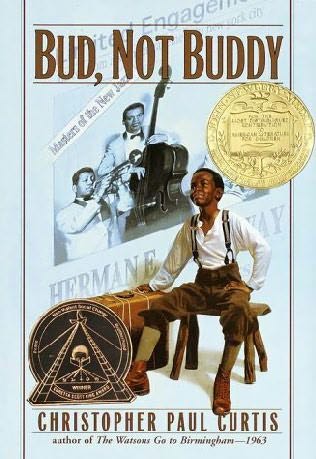
It’s 1936, in Flint, Michigan, and when 10-year-old Bud decides to hit the road to find his father, nothing can stop him.
“A bud is a flower-to-be. A flower in waiting. Waiting for just the right warmth and care to open up. It’s a little fist of love waiting to unfold and be seen by the world. And that’s you.”
This was one of the first books I ever loved. I first read it in fourth grade as teachers and parents urged me to branch away from Junie B. Jones and Captain Underpants (I had a high reading level, and they insisted I use it). So this is the book that I picked. I think this is important, first and foremost, because it is a children’s novel. It doesn’t have the intensity or complexity of something by, say, Toni Morrison. It’s digestible to young readers, and with this honest portrayal of a young black boy during the great depression, I find that important. In my mind, the book has always been representative of the eternal question: when things get so hard, why keep going? Because, the book answers, ‘when god closes one door, he opens another.’
“Just like when there’s a time that a smart person knows enough is enough, there’s a time when you know you’ve got to fight.”
Push by Sapphire
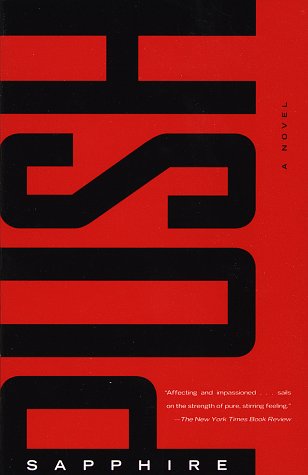
Precious Jones, a illiterate sixteen-year-old, has up until now been invisible: invisible to the father who rapes her and the mother who batters her and to the authorities who dismiss her as just one more of Harlem’s casualties. But when Precious, pregnant with a second child by her father, meets a determined and highly radical teacher, we follow her on a journey of education and enlightenment as Precious learns not only how to write about her life, but how to make it her own for the first time.
“Every blade of grass has its Angel that bends over it and whispers: ‘Grow, Grow’.”
This novel gives insight as to what it’s like to live poor and forgotten, live knowing that system thinks you don’t matter and most consider you to be a lost cause. In this story, Precious is a “black object in a world of hopelessness and despair”. While the details of her story are not remotely universal, the core of her story is something that too many people share, including a disproportionate amount of black people. Precious, for the majority of the story, is simply surviving. Is there more to life? Is there a way we can break out of this, find something better? The answer: if we all hope together, maybe.
“I say I drownin’ in river. She don’t look me like I’m crazy but say, If you just sit there the river gonna rise up drown you! Writing could be the boat carry you to the other side.”
The Bluest Eye by Toni Morrison
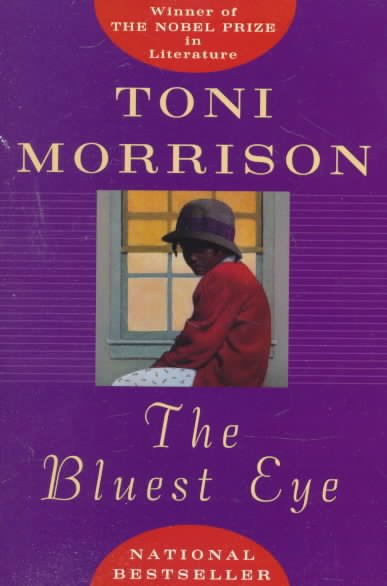
The Bluest Eye tells the story of black, eleven-year-old Pecola Breedlove. Pecola prays for her eyes to turn blue so that she will be as beautiful and beloved as all the blond, blue-eyed children in America. It is a vivid evocation of the fear and loneliness at the heart of a child’s yearning, and the tragedy of its fulfillment.
“Along with the idea of romantic love, she was introduced to another–physical beauty. Probably the most destructive ideas in the history of human thought. Both originated in envy, thrived in insecurity, and ended in disillusion.”
Why should we love something when it is not beautiful? This book. Just…this book. Something that is hugely important that people often miss – this is not negatively looking at blue eyes and blonde hair. It’s honestly critiquing society. Pecola’s love and need for blue eyes was representative of a life she would have preferred. The white, middle class life. She loved the idea, and love can be so dangerous. Love perpetuates beauty, and to many black girls beauty, in their minds, is impossible. Because they can never be white. This is important and continues to be important because this is still a problem in society today. When asked who the prettiest, smartest, nicest child is in a line up of identical cartoon children (save for their color), children chose the light skin. Whiteness is what we continue to behold as beautiful – the white face, the white figure. It’s not nearly as bad as it was in the past, but we still have a ways to go. This book is a beautiful take on the identity of a young black girl who doesn’t think she’s beautiful.
“Love is never any better than the lover. Wicked people love wickedly, violent people love violently, weak people love weakly, stupid people love stupidly, but the love of a free man is never safe. There is no gift for the beloved. The lover alone possesses his gift of love. The loved one is shorn, neutralized, frozen in the glare of the lover’s inward eye.”
To Kill A Mockingbird by Harper Lee

Tomboy Scout Finch comes of age in a small Alabama town during a crisis in 1935. She admires her father Atticus, how he deals with issues of racism, injustice, intolerance and bigotry, his courage and his love.
“If there’s just one kind of folks, why can’t they get along with each other? If they’re all alike, why do they go out of their way to despise each other?”
This book talks a lot about innocence, morality, and sympathy. In includes a lot about the struggles of a black man and community through the eyes of a young girl as she tries to figure out how people divide themselves. It is difficult to comprehend how a person could hate another person without first knowing that person, passing judgement with a glance. Reading a white child trying to make sense of it adds some kind of sense to the whole thing. What these people are doing, it’s not looking. They can’t tell the difference between a mockingbird and a blue jay, although they’re sure that one is bad and the other’s good. A blue jay can’t see through the mockingbirds eyes – it’ll go on sure it’s a mockingbird. There is a real struggle to be able to sympathize with other human beings, to discover that these people are, in fact, human beings. We are all different, but we are all the same. We are unequal, but equal. We are all human. When we have enough sympathy to realize the humanity of the people around us, we can see our own.
“When they finally saw him, why he hadn’t done any of those things . . . Atticus, he was real nice. . . .” His hands were under my chin, pulling up the cover, tucking it around me. “Most people are, Scout, when you finally see them.”
Beloved by Toni Morrison
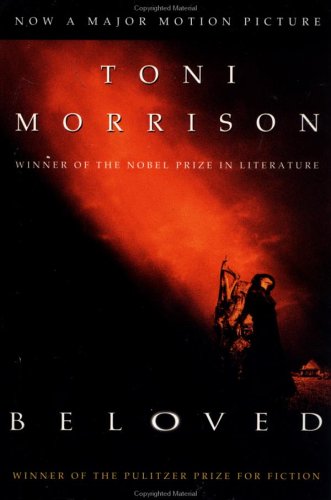
Sethe was born a slave and escaped to Ohio, but eighteen years later she is still not free. She has too many memories of Sweet Home, the beautiful farm where so many hideous things happened. Her new home is haunted by the ghost of her baby, who died nameless and whose tombstone is engraved with a single word: Beloved.
“Beloved looked at the tooth and thought, This is it. Next would be her arm, her hand, a toe. Pieces of her would drop maybe one at a time, maybe all at once. Or on one of those mornings before Denver woke and after Sethe left she would fly apart.”
This book is not about slavery. It’s about people, and what happens next. What are you, when one day you become more than another man’s property? At what point do you become free? Beloved is a character who belongs complete to other people. Her life depends on the love and attention of Sethe and Denver. And she is empty and falling apart. To Sethe, at least, she would rather her children be dead completely than dead on the inside – “if I hadn’t killed her she would have died and that is something I could not bear happen to her.” To Beloved, she cannot distinguish death from the white man – the skinless man with a whip is after her. This is the embodiment of both death and slavery. Slavery took the personhood and the identities of an entire peoples, sapping them and leaving them to discover something different when it was through with them. People keep doing this to themselves and to each other, and this is a kind of slavery that we cannot allow ourselves to be subjected to. We have to remember slavery and the wrongness of the past hundred years for the same reason we must forget. Who are we, without it?
“But suddenly she saw her hands and thought with a clarity as simple as it was dazzling, ‘These hands belong to me. These my hands.’ Next she felt a knocking in her chest and discovered something else new: her own heartbeat. Had it been there all along? This pounding thing? She felt like a fool and began to laugh out loud.”
Their Eyes Were Watching God by Zora Neale Hurtson
One of the most important works of twentieth-century American literature, Zora Neale Hurston’s beloved 1937 classic, Their Eyes Were Watching God, is an enduring Southern love story sparkling with wit, beauty, and heartfelt wisdom. Told in the captivating voice of a woman who refuses to live in sorrow, bitterness, fear, or foolish romantic dreams, it is the story of fair-skinned, fiercely independent Janie Crawford, and her evolving selfhood through three marriages and a life marked by poverty, trials, and purpose. A true literary wonder, Hurston’s masterwork remains as relevant and affecting today as when it was first published—perhaps the most widely read and highly regarded novel in the entire canon of African American literature.
Sexuality, power, independence. This was one of the first major books by a black woman about a black woman and one of the many gemstones of the Harlem Renaissance. I could never do it any justice, so I’ll live you with it, and let it speak for itself. Let me know what you think about it in the comments, and have a very nice day.
“It is so easy to be hopeful in the daytime when you can see the things you wish on. But it was night, it stayed night. Night was striding across nothingness with the whole round world in his hands . . . They sat in company with the others in other shanties, their eyes straining against cruel walls and their souls asking if He meant to measure their puny might against His. They seemed to be staring at the dark, but their eyes were watching God.”
Part 1 – Part 2
